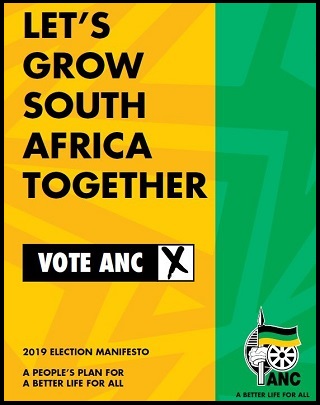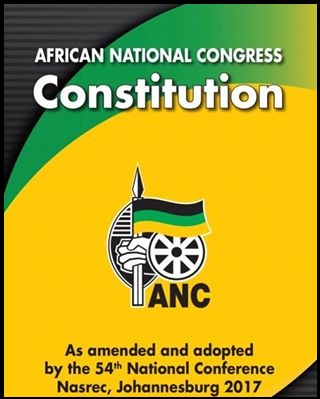In terms of laws of motion, for every action there’s a reaction in the opposite direction. Equal in magnitude the forces acting upon the action-reaction interaction balance each other, create the state of, or hold in an equilibrium. Unequal magnitudes between those opposed forces result in a motion determined by a force or set thereof acting together with greater magnitude. It was Isaac Newton who proved the universal validity of this law in physics. In social science, it was Karl Marx who proved the universal validity of a similar law governing the movement of human society, but this based on a different philosophy – materialism, dialectical, and its conception of history.
What in physics constituted interaction between the push-pull forces acting-reacting in opposite directions constituted in social science the unity of the opposites which therefore involves a conflict between them. The material basis of this contradictory relationship is constituted by the social relations of economic production. Society is divided into classes which constitute those forces, organised or lined up at times in ways and forms which are not obvious. The main factor that Marx identified as the reason for the conflict, which becomes the motor of human history – class struggle, is the exploitation of one class of people by another. The class that is exploited wages resistance to that exploitation and the struggle to end it.
The SA history was not constituted any differently. The month of April during which we celebrate the Freedom Day on the 27th reminds us of some of the significant events in this process of class struggle. These events go in opposite directions in line with the constitutive forces of the underlying struggle. As President Jacob Zuma said in the 2015 ANC January 8th Statement the arrival on 6 April 1652, the establishment and expansion of European settlement in the land of South Africa created contradictions which caused the deep-rooted problems our society was to be faced with for a very long time.
The wars of colonial conquests and dispossession followed. The state that would develop and preside on national oppression and gender domination based on class exploitation was established. This went through various phases of development, among them the creation of two British colonies, the Cape and Natal, and two Afrikaner “republics”, Orange Free State and Transvaal. The Union of SA established in 1910 consolidated this process of state formation and the class role for which it was created. Dispossession was continued through bloody legislation. The oppressed were forcefully proletarianised. Left with no means of production of their own, they were converted into a class of wage labourers to be exploited for profit.
Thus the problems of class inequality, poverty, and as the system of exploitation developed unemployment were created by the international capitalist expansion led by the British and white bourgeois of South Africa who became dominant in the affairs of the country. This bourgeois composition expanded as the system of exploitation in SA developed. The ANC underlines this in its 1969 Strategy and Tactics when analysing the enemy, its strengths and weaknesses when it states:
“…the major imperialist powers such as Britain, W. Germany, France and the United States and Japan who have an enormous stake in the economy of our country constitute a formidable support for the Apartheid regime. Already now before the crisis deepens the imperialist partners of South Africa have done much to develop the economy and armament programme of South Africa. In a situation of crisis they may pass over from support to active intervention to save the racist regime.”
Opportunists who have the effect of strengthening the strategic opponent of our struggle have manufactured a new version of our history. They are arguing that the historical problems faced by our people were created by the ANC and its liberation Alliance partners the SACP and COSATU.
As we celebrate the Freedom Day on April 27th let us not forget that our people have not achieved freedom from the form of oppression which created those problems and from the very problems. Without that freedom we cannot claim that we have achieved freedom. In the ANC’s own words as succinctly expressed in its 2011 January 8th Statement:
“Political emancipation without economic transformation is meaningless. That is why we have to commit ourselves to economic freedom in our lifetime, and the ANC must continue to be in the forefront of that transformation”.
The milestone we achieved in 1994 which we will be celebrating on April 27th must therefore NOT be confused with complete freedom. That milestone must be seen as having established relative freedom from the existence of the apartheid regime which we dislodged through the ballot after many years of struggle in which countless lives were lost in a violent suppression imposed by the oppressors. The 27th April 1994 therefore represented a democratic breakthrough to continue our struggle towards complete freedom and therefore towards a fully developed democracy which cannot be achieved without the freedom which must underpin it.
This is what Comrade Chris Hani who was assassinated on 10th April 1993 stood for. What he fought for is not fully achieved. Only the foundations for transformation and development towards it were laid.
We are speaking of the freedom which Solomon Kalushi Mahlangu referred to unwaveringly despite facing gallows where he was hanged on 6th April 1979 when he said:
“My blood will nourish the tree that will bear the fruits of freedom. Tell my people that I love them. They must continue the fight”.
As we enter the new phase of this fight, the second, more radical phase of our National Democratic Revolution (NDR), let’s not veer away from science. OR Tambo who died on 24th April 1993 would support this proposition if he were alive. In his opening address to the ANC’s 48th National Conference on 2 July 1991 this is what the longest serving President of the movement had to say:
“…we did not tear ourselves apart because of lack of progress at times. We were always ready to accept our mistakes and to correct them. Above all we succeeded to foster and defend the unity of the ANC and the unity of our people in general. Even in bleak moments, we were never in doubt regarding the winning of freedom. We have never been in doubt that the people’s cause shall triumph.”
Today many changes have occurred. Major social advances have been scored. Life in general has changed. The country is indeed a better place to live in than before 1994. But many problems remain, frustrating the lives of many people especially the workers and the poor. Meanwhile, other problems have reinforced, and new ones have emerged. That therefore more work needs to be done cannot be overemphasised.
But we must be clear about the content of this work. Which is why the SACP has initiated a discussion document entitled ‘GOING TO THE ROOT’. Equally important we must return in greater detail, education and social mobilisation from where we started. This, the analysis of the balance of forces both in support of the democratic transformation of our country and those lined up against it from all angles is the subject of another intervention, if not a series of consistent interventions.
Our next instalment entitled ‘Structural constraints of super-structural power: The backbone of SA’s contemporary challenges’ delves into the task.
Let’s celebrate the Freedom Day knowing what it means, our responsibilities and strategic tasks!
Comrade Solly Mapaila is SACP Second Deputy General Secretary




